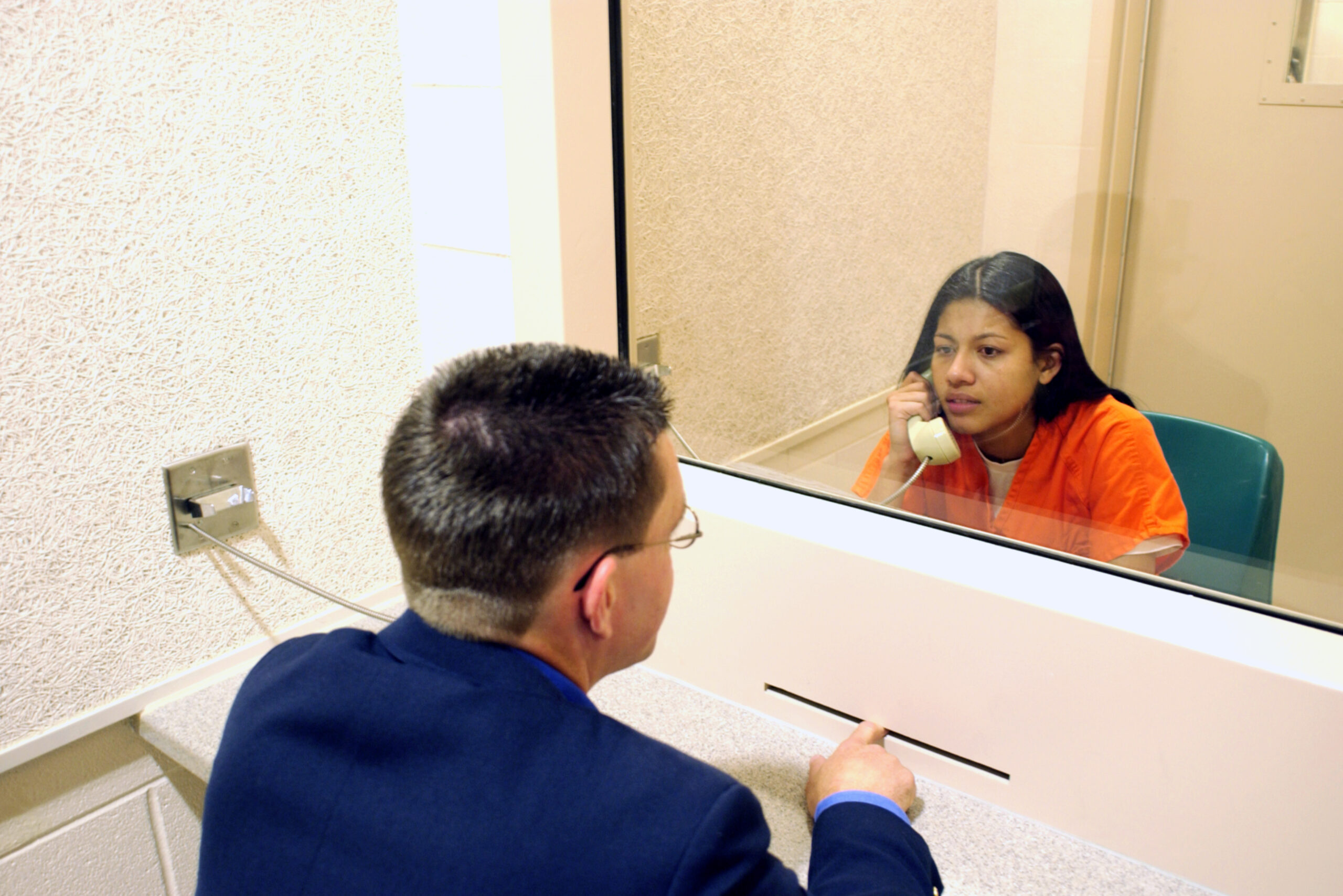
Inmate Search
Do you know someone who has been arrested and placed in jail or prison? Finding an inmate can be challenging and confusing. Here is a reference guide with common questions we receive regarding inmate searches, and some information that could help you find your friends or loved ones.
How soon after arrest will someone show up in the system?
Keep in mind that someone who is arrested will not immediately show up in an online search. This is because it takes time for the arresting agency to bring that person to the station and go through the booking process. It generally takes many hours before the booking process is complete. If you can’t find someone online and you know they have been arrested, you may just have to give it a little time before they will show up. If you know what agency arrested them, you can also try calling the agency directly and confirm where they are being held, when they will go to court, and the arrest charges.
How Do I Find Someone In Custody?
If someone is in local custody, meaning they were arrested by a local police or sheriff’s department or were convicted in the superior court and are serving a county jail sentence, then they can be located in the local sheriff’s department’s inmate locator.
If someone is in state custody because they were convicted of a crime and sentence to state prison, then they can be located in the California Department of Corrections and Rehabilitation’s California Incarcerated Records and Information Search.
If someone is arrested by a federal officer such as FBI, DEA, ICE, or another federal agency, they would likely be found in either the Federal Bureau of Prisons Inmate Locator or the U.S. Immigration and Customs Enforcement – Online Detainee Locator System
See the links below to help you find the person you are looking for. Please note that it is not uncommon for these inmate locator websites to be “down” and unavailable. Unfortunately, these websites are not always reliable even though they are run by the government. If the website does not seem to be working, keep trying, or call the agency directly to ask about the arrestee.
LOCAL
Ventura County Sheriff’s Office – Inmate Information
https://www.venturasheriff.org/inmate-information/
Los Angeles County Sheriff’s Department – Inmate Locator
Orange County Sheriff’s Department – Inmate Locator
https://www.ocsheriff.gov/how-do-i/get-inmate-information
Riverside County Sheriff’s Department – Jail Information Management System
https://jimspub.riversidesheriff.org/html/PressSearch.html
San Bernardino County Sheriff’s Department – Inmate Locator
https://wp.sbcounty.gov/sheriff/corrections/inmate-locator/
San Diego County Sheriff’s Department – Who’s In Jail

STATE
California Department of Corrections and Rehabilitation – California Incarcerated Records and Information Search
FEDERAL
Federal Bureau of Prisons – Inmate Locator
https://www.bop.gov/inmateloc//
U.S. Immigration and Customs Enforcement – Online Detainee Locator System
Will the arrest charges be the actual charges in court?
Not necessarily. It is ultimately up to the prosecuting agency (e.g., the DA’s Office, the City Attorney’s Office, or the United State’s Attorney’s Office) to bring the charges against a defendant. So what matters ultimately is not the charge someone is arrested on but instead what charges the prosecutor brings. This is not usually revealed until the arrestee is brought to court and the attorney is given the Complaint or Indictment showing the exact charges.
How does bail work?
Bail is used by the court to make sure someone will make all the court appearances and not skip town. The idea is that if you have to post money for your freedom, then you are more likely to show up to all your court appearances so that you don’t lose that money. If you fail to appear in court for any single hearing, the court can order that the bail be “forfeited” which could mean the money is lost to the court. However, if a bail bond company posted the money for you, they could send a bounty hunter after you to bring you to court, and then ask the judge to please set aside the forfeiture and give them back their money. Therefore, it is extremely important to make all of your court appearances if you are out on bail.
How much money do I have to come up with for bail?
If you post the bail yourself, you would pay 100% of the bail amount and that amount would be returned to you if you make all your court appearances.
If you do not have enough money to post the entire bail yourself, you can hire a bail bonds company to post the money for you. They will typically charge you a percentage of the total bail amount, no more than 10%, and some lower than that. The bail bond company may accept payments on the bail fees, but that would need to be worked out with the bail company. The bail bond company usually will also require some type of collateral to make sure that if the arrestee skips town or misses court then they can use that collateral to cover their loss.

Should I bail someone out of jail?
There are many reasons why someone may want to get bailed out. They may have a job and not want to lose it. They may have a family to take care of or other commitments to attend to. They may be afraid to be in custody. They may have a serious medical condition that requires close care. In these circumstances, it may make sense to bail out.
However, in certain cases, it may be better NOT to post the bail. For example, if the person has not gone to court yet, there may be a chance that they can get released “OR” at the first court hearing. If the Court releases someone “OR” aka Own Recognizance release, this means that no bail will need to be posted. By waiting until the court date and seeing if the arrestee gets an OR release, you could save a substantial amount of money that would otherwise be paid to a bail bond agency.
Another example is where the charges are very serious. In these instances, the bail might be really high, and given the seriousness of the case it might make more sense to use the bail money to instead hire a private defense attorney. Private defense attorneys can often go the extra mile for their clients and invest a lot of time and energy into a defense. They are also usually a lot more accessible than a public defender. Ultimately, the decision to bail someone out or leave them in custody depends on a multitude of factors. A criminal defense attorney may be able to help you make this decision.
Visitation
Inmate visitation changes facility by facility. To get current visitation information, contact the facility where your friend or loved one is being held. Many facilities require appointments ahead of time to visit an inmate, have only certain days where visitations are allowed (e.g., weekends), and have only certain time slots available for visitation. If you try to go to the facility without an appointment or on a date/time when visitations are not allowed, you will likely be turned away.
Please also keep in mind that jail facilities have strict rules for visitation. For example, you are not allowed to bring cell phones or any other electronic devices into a jail. It is very important that you know the rules and comply with them. You do not want to get arrested trying to visit someone in custody.
If you or someone you know has been arrested on criminal charges, schedule a FREE CONSULTATION with our Criminal Defense team today!

